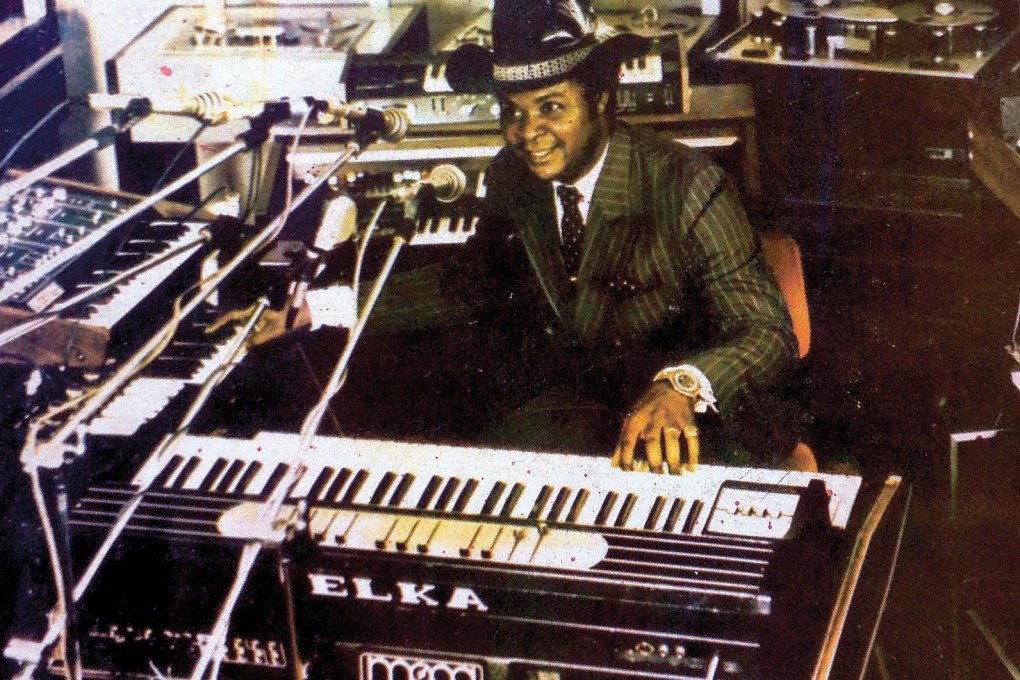Veteran Nigerian musician William Onyeabor retains his mystery
William Onyeabor released eight albums in Nigeria yet gathered fans in the West, writes Mike Rubin

On a recent Saturday night, a boisterous crowd jammed into Buka, a Nigerian restaurant in the Clinton Hill section of Brooklyn, spilling out onto Fulton Street. This wasn't the restaurant's usual weekend clientele, primarily expat Nigerians already familiar with specialities such as goat-head stew and giant land snails. Instead, the throng had gathered for a record-release party, listening to African-flavoured DJ sets by Steve Shelley, formerly of Sonic Youth, and Lizzi Bougatsos of Gang Gang Dance. Just past the bar, revellers took turns posing for selfies standing next to a two-metre cardboard cut-out of an imposing man in a disco-era cream-coloured tuxedo.
The life-size image was borrowed from the cover of the 1980 record Body & Soul by William Onyeabor, a Nigerian Igbo singer-songwriter who self-released eight nearly impossible-to-find albums of analogue synthesiser-driven electronic funk between 1977 and 1985. Highlights from those albums are collected on Who is William Onyeabor?, the recently released fifth volume of Luaka Bop's World Psychedelic Classics series, and the first album of Onyeabor's music commercially available in North America and Europe.
I have decided now that henceforth all my [music] will be to praise God and preach the word of God
Despite posters heralding the arrival of Onyeabor "for the first time in the United States", however, the guest of honour was nowhere to be found at Buka. His cardboard stand-in was probably the closest anyone would come to meeting Onyeabor, as he remained ensconced in his sprawling palace outside Enugu, Nigeria, ambivalent about the world finally discovering his music.
Closer in sound to Parliament/Funkadelic than to his compatriot Fela Kuti, Onyeabor is a cipher with a tantalisingly mysterious back story. Over the phone from Nigeria, responding to prepared questions, he stresses that all he wants people to know about him is that "I was a sinner who repented and gave himself 100 per cent to Christ". Describing himself as a born-again Christian, Onyeabor refuses to discuss his education (he reportedly studied film production in the Soviet Union and has a law degree) or his musical career.
"I am only proud of my music because of the creative aspect of it," he says. "I didn't use it strictly to praise God. That is why I have decided now that henceforth all my revealings will be to praise God and preach the word of God."
Nonetheless, Onyeabor is worshipped by a fervent cult, with his out-of-print records trading for as much as US$1,000 online. Even Luaka Bop's limited-edition vinyl reissue of his 1983 album, Good Name, sold out instantly this autumn and has since fetched US$150 on eBay. Onyeabor's work has also found enthusiastic fans among electronic artists such as Four Tet, Optimo and Hot Chip, as well as rock performers Damon Albarn, Devendra Banhart and Merrill Garbus of Tune-Yards. And Luaka Bop is co-producing a documentary about Onyeabor.